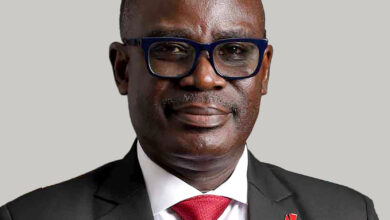Afreximbank Has Been the Backbone of Africa’s Trade and Industrial Integration- Wamkele Mene
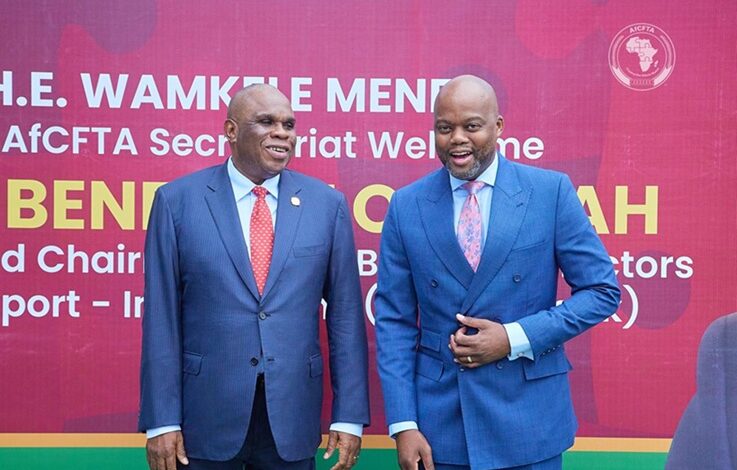
The Secretary-General of the African Continental Free Trade Area (AfCFTA) Secretariat, Wamkele Mene, has praised Afreximbank’s outgoing President, Prof. Benedict Oramah, for positioning the institution as the “backbone of Africa’s trade finance architecture” and a driver of industrial development, as he paid a farewell tribute in Accra.
Mene spoke during Prof. Oramah’s farewell visit to the AfCFTA Secretariat in Accra, themed “The nexus between trade finance, industrial development and economic integration in Africa: Afreximbank.” He said the event was a fitting reminder of the critical role that access to trade finance plays in turning the aspirations of Africa’s integration agenda into tangible economic transformation.
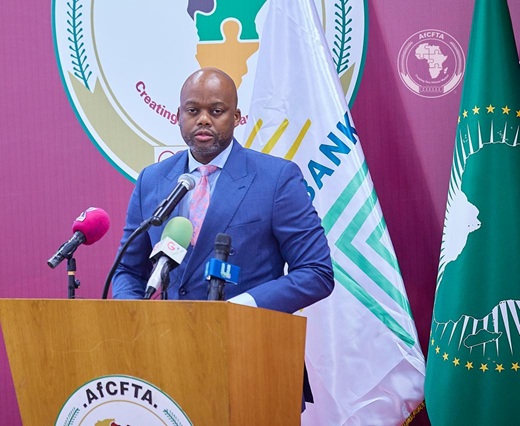
“Trade finance is not just about liquidity, it is about sovereignty. It is about giving African businesses the tools to manufacture, process, and compete in global markets,” Mene told participants, adding that Afreximbank under Oramah’s leadership had bridged gaps that once left African traders and SMEs excluded from global finance.
From Ideas to Tools
Mene outlined how the AfCFTA–Afreximbank partnership has created practical mechanisms to anchor Africa’s integration. The Adjustment Fund supports states facing tariff revenue shortfalls during AfCFTA implementation. The Pan-African Payment and Settlement System (PAPSS) has slashed the cost and time of cross-border payments. The MANSA due diligence platform boosts trust and transparency in African trade, while the Intra-African Trade Fair (IATF) has become a marketplace for showcasing African goods and services to buyers across the continent.
“These are not abstract concepts. They are tools being used by small business owners, farmers, industrialists, and artists to create value,” Mene said.
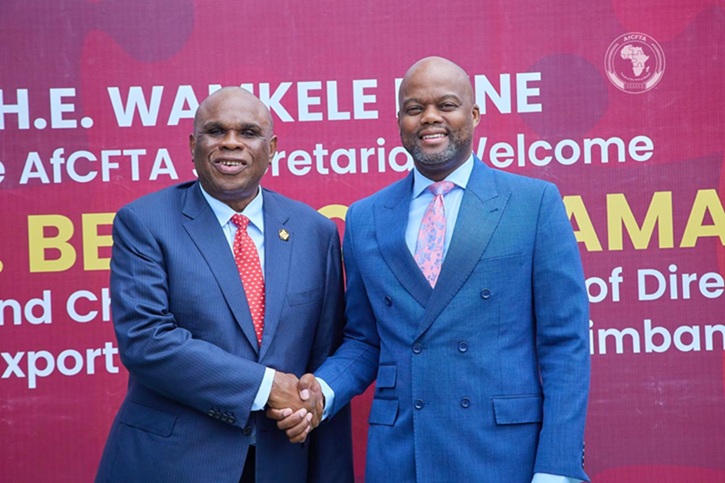
Industrial Development at the Core
Mene tied these initiatives to Africa’s industrialisation goals, noting that Afreximbank has been instrumental in financing value-addition projects in agro-processing, pharmaceuticals, logistics, and creative industries. By linking finance to industrialisation, the Bank has demonstrated how trade and industry can work hand-in-hand to boost Africa’s competitiveness.
He highlighted that Africa cannot achieve structural transformation without an industrial base and that Afreximbank’s capital mobilisation — growing its assets from US$5 billion in 2015 to US$37 billion by 2023 — has been a lifeline for African governments and firms seeking to invest in productive capacity.
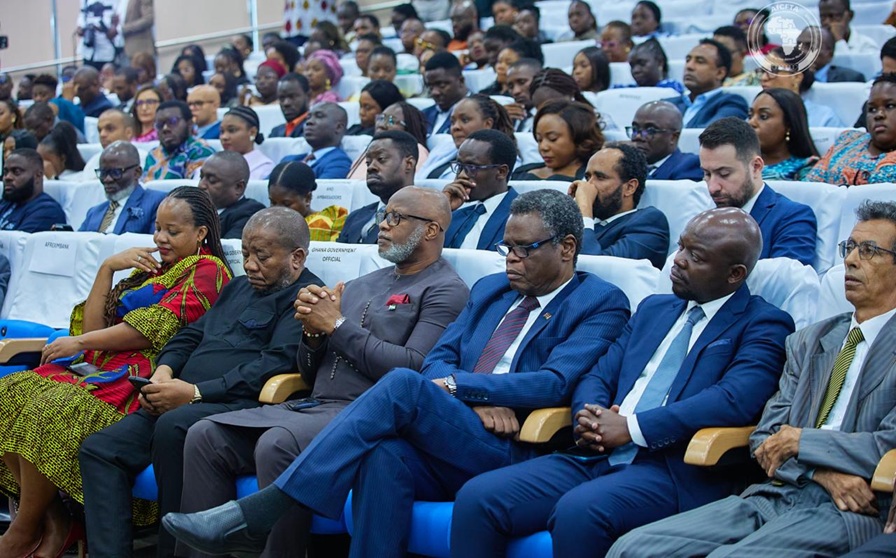
Safeguarding Trade During Crises
Mene further recalled Afreximbank’s interventions during global shocks, including the COVID-19 pandemic and supply chain disruptions. “When markets froze, Afreximbank stepped in to keep trade moving, to keep factories running, and to give governments breathing space. That is not just finance—it is leadership,” he said.
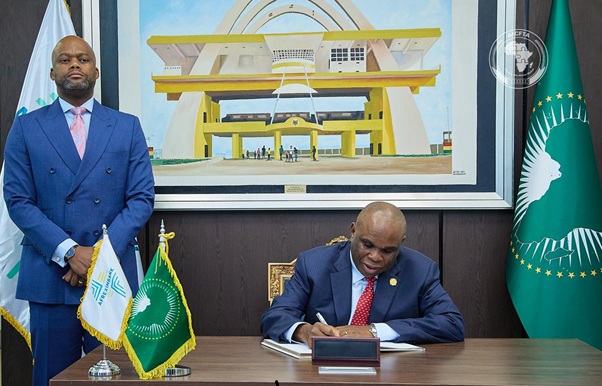
Looking Ahead
With Afreximbank set to undergo leadership transition, Mene said the AfCFTA Secretariat will continue deepening collaboration with the institution to scale up digital trade platforms, strengthen regional value chains, and ensure women, youth, and SMEs are positioned as beneficiaries of Africa’s single market.
“The AfCFTA will not succeed without trade finance. And trade finance will not deliver its promise unless it fuels industrialisation. This nexus is what will define Africa’s place in the 21st century,” he stressed.
Prof. Oramah, who leaves after a decade at the helm of Afreximbank, is widely credited with transforming the Bank into a continental powerhouse in trade and industrial finance.


